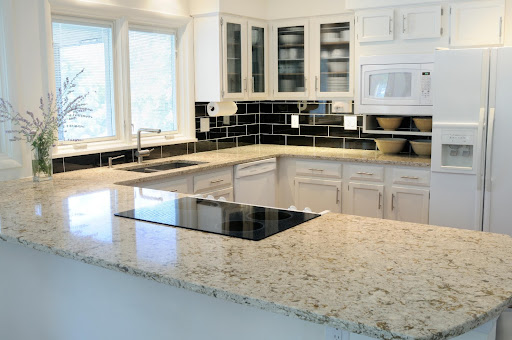Table of Contents
Quartz countertops have been becoming increasingly popular in the last few years, and are now seen in kitchens all around the world. It’s the latest form of luxury, a beautiful and stylish addition to any home – but as with all countertops, there are both pros and cons of choosing this material for your next kitchen project. Let’s weigh up the pros and cons of quartz worktops in the hope you can determine whether or not it’s the right fit for you.
The Pros
Quartz is one of the most popular countertops on the market. It offers color, pattern and texture choices that are not only beautiful but durable, low maintenance and stain resistant. There are plenty of reasons why quartz counters make great kitchen surfaces. Here are just a few:
Appearance
The appearance of quartz is one of its most defining characteristics. Coming in a variety of colours and shades, each can be customised to provide you with tailored features that add a stylish look to the kitchen, keeping it in harmony with other aspects of the home’s interior design. The worktop’s appearance is also affected by the presence of various inclusions such as bubbles, swirls, and streaks that can be at varying levels of intensity.
Durability
The durability of quartz countertops is one of the main reasons why a lot of people choose them. Quartz is non-porous and stain-resistant, meaning it’s less likely to crack or break. For people who are nervous about spillage and stains, this can be a huge benefit!
Easy to Clean
A quartz countertop is easy to clean not just because of its resistance to staining, but its antimicrobial properties as well. Quartz is non-porous, which means that surfaces made from it will have no microscopic pores for microorganisms to attach in and graze from. When spills occur on these countertops, food and drink won’t seep into the stone; instead, they remain on the surface until a cleaning agent comes in to remove them.
The Cons
Regardless of how much we love the surface, there are a few things that you should be aware of. Below, we’ve listed a few downsides worth knowing before making a final decision:
Cost
Due to its high durability and long-term performance, quartz is not always the cheapest option. Prices can range from £50-100, depending on the material grade and manufacturer.
Prone to Heat Damage
The high temperatures that quartz can withstand make it a great choice for kitchen countertops. However, the resin and polymer fillers that are used to bind quartz can be prone to heat damage if they come into contact with hot cookware. Discolouration and permanent surface damage may occur if this happens.













